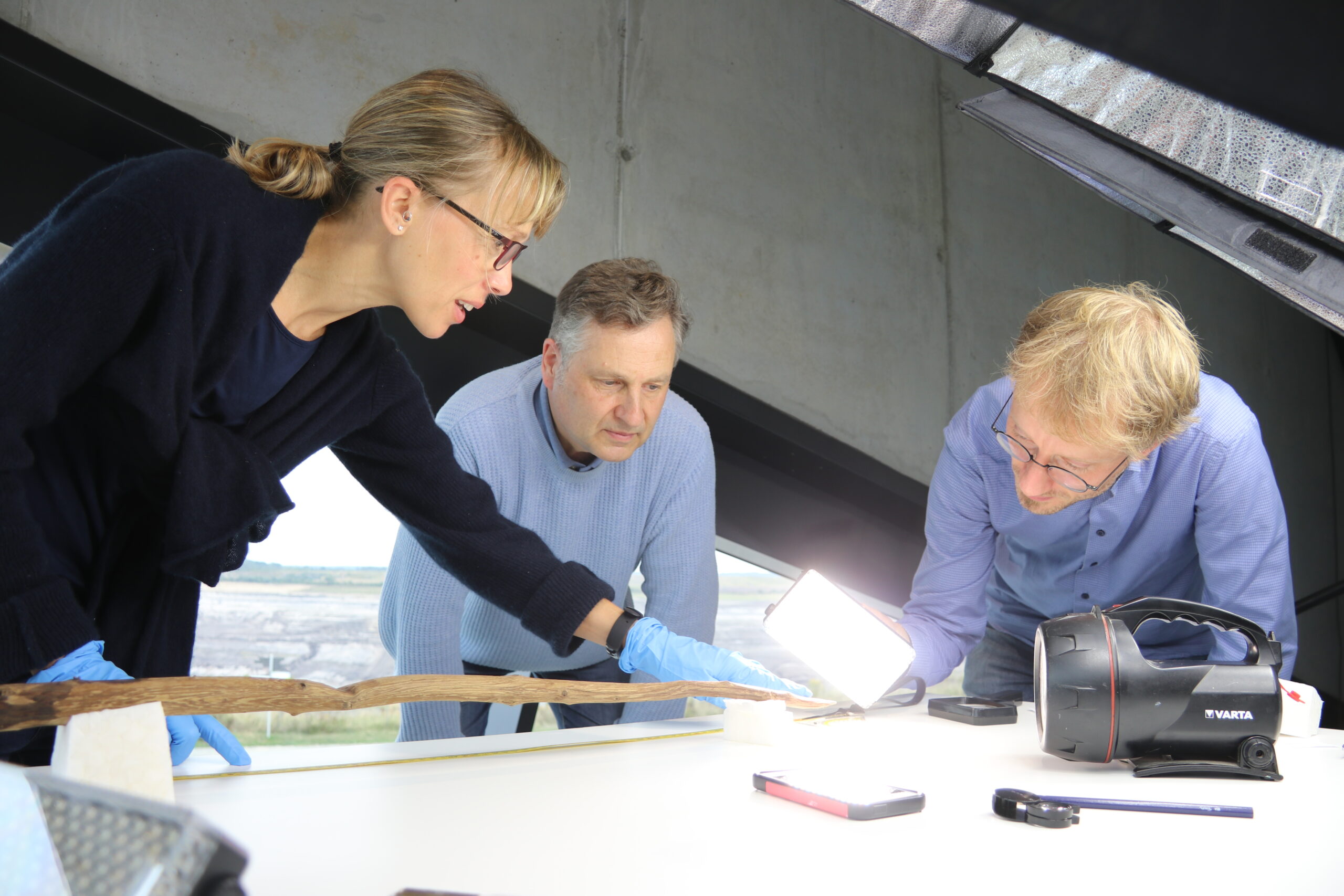A double-pointed wooden throwing stick from Schöningen, Germany: Results and new insights from a multi-analytical study
By investigating a 300,000-year-old wooden hunting tool, this study establishes that early Neanderthals had the cognitive abilities to develop multi-step woodworking techniques, and to craft aerodynamic and ergonomic tools which may have been used by children to hunt. Analysis of the tool enabled researchers to show how early humans were technologically capable of hunting smaller and aerial prey, altering understanding of the origins of woodworking in human evolution.
Annemieke Milks is a British Academy Postdoctoral Research Fellow in Archaeology and winner of the University’s 2024 Research Output Prize (Heritage & Creativity theme) for her paper as co-author in PLOS ONE: ‘A double-pointed wooden throwing stick from Schöningen, Germany: Results and new insights from a multi-analytical study’.

